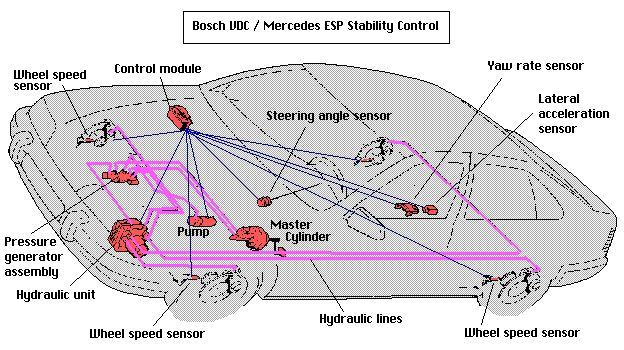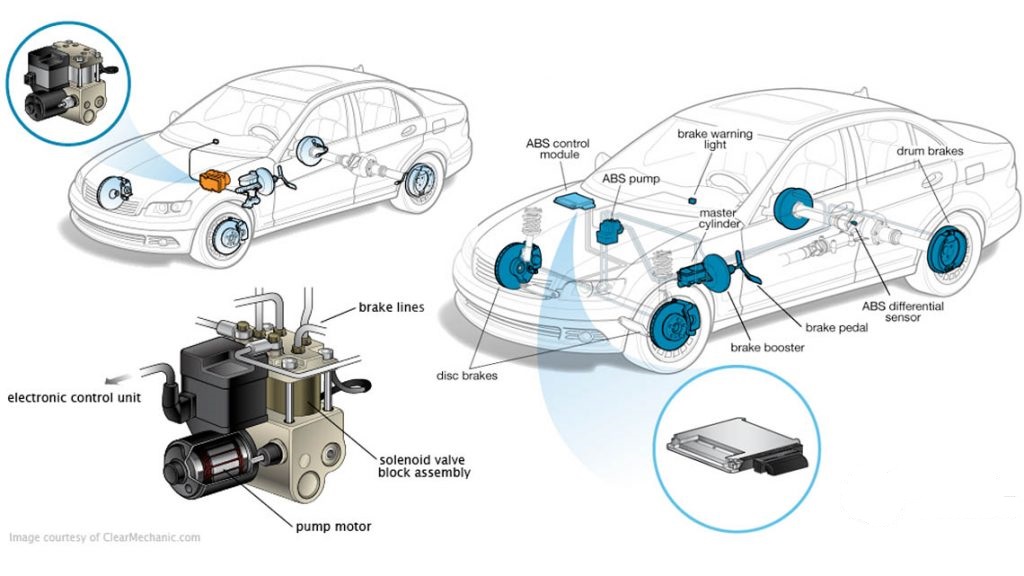Electronic Stability Control (ESC) stands out as a pivotal innovation. This system plays a crucial role in maintaining vehicular control under challenging conditions, significantly reducing the likelihood of accidents. When ESC shows signs of malfunction, it is imperative to address these issues swiftly to ensure ongoing safety and reliability.
Mechanisms Of Electronic Stability Control
Electronic Stability Control is a sophisticated system designed to enhance a vehicle’s stability and efficency by detecting and reducing traction loss. When the system perceives a discrepancy between the driver’s intended path and the vehicle’s direction, it intervenes by applying brakes to specific wheels, aiding in steering the vehicle correctly. Its components – including sensors, control units, and the braking system – are integral to its effective operation.

Causes of Electronic Stability Control Malfunctions
ESC malfunctions can arise from various sources. These include faulty or malfunctioning sensors like wheel speed, steering angle, or yaw sensors; electrical issues within the ESC’s circuitry; and even indirect effects from worn brakes or suspension components.
DIY Troubleshooting Steps
Initial troubleshooting steps for Electronic Stability Control issues involve:
- Warning Lights Inspection: Monitoring the dashboard for ESC-related alerts.
- Sensor Examination: Checking and cleaning the ESC sensors for debris or damage.
- Electrical System Check: Reviewing the wiring and connections for signs of wear or damage.
Professional Diagnostic and Repair
Professional intervention is often required for complex ESC issues. Mechanics with specialized tools can provide accurate diagnoses and conduct necessary repairs services, ranging from sensor replacement to addressing electrical and mechanical faults.

Preventive Maintenance and Tips
Preventive measures can greatly reduce the likelihood of ESC issues. Regular maintenance of brakes and suspension, safe driving practices, and consistent vehicle servicing are key to maintaining the ESC’s functionality.
Legal and Safety Considerations
In many jurisdictions, a functional ESC system is mandatory. Its significance extends beyond legal compliance to encompass crucial safety benefits reduce the risk of being involve in vital crash and from scratches, especially in challenging driving conditions.
Pros and Cons of Electronic Stability Control
Pros
- Enhanced Safety: Significantly reduces the risk of accidents due to loss of control.
- Improved Vehicle Control: Helps maintain the vehicle’s intended path during sudden maneuvers.
- Accident Prevention: Particularly effective in slippery conditions, reducing skidding and rollovers.
Cons
- Over-Reliance: Drivers may become overly reliant on ESC, potentially leading to careless driving habits.
- Maintenance Cost: ESC systems can be complex and expensive to repair when issues arise.
- False Security: Some drivers might misconstrue ESC as a substitute for safe driving practices.
Conclusion
While maintaining your vehicle’s ESC is crucial for safety and compliance, understanding its limitations and benefits is equally important. By proactively addressing ESC issues and appreciating its role in vehicle safety, drivers can ensure their journey remains safe and secure.
